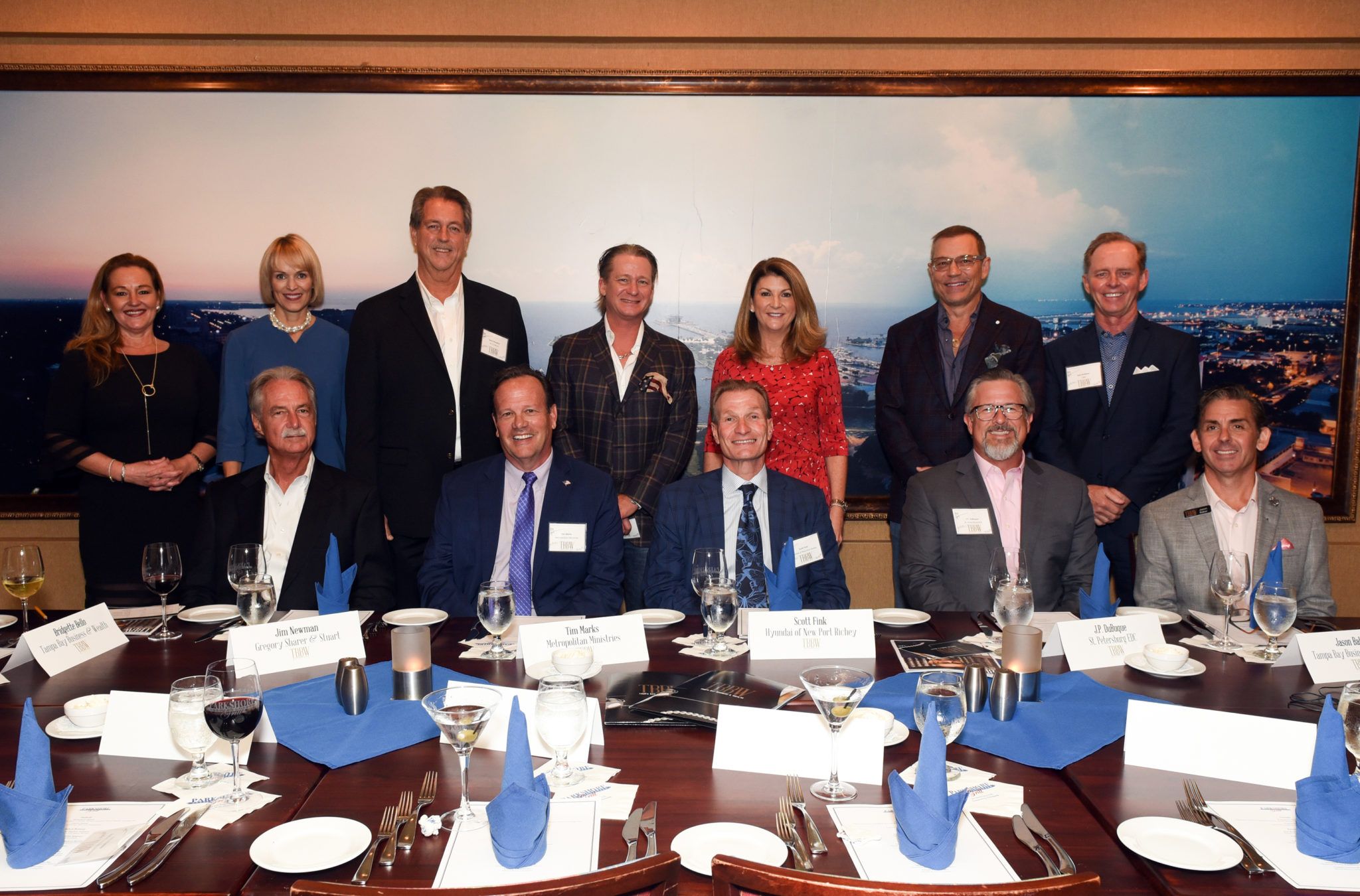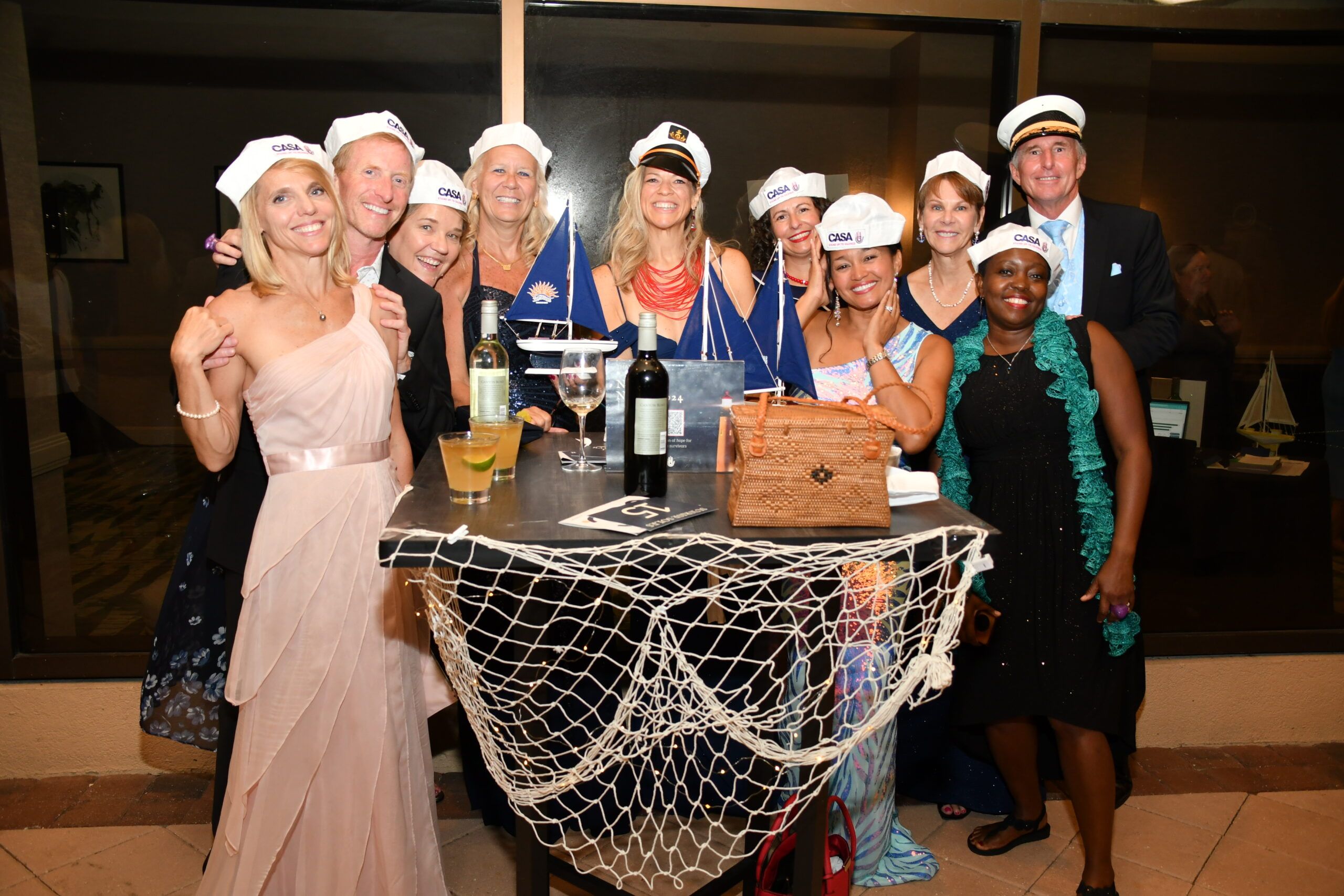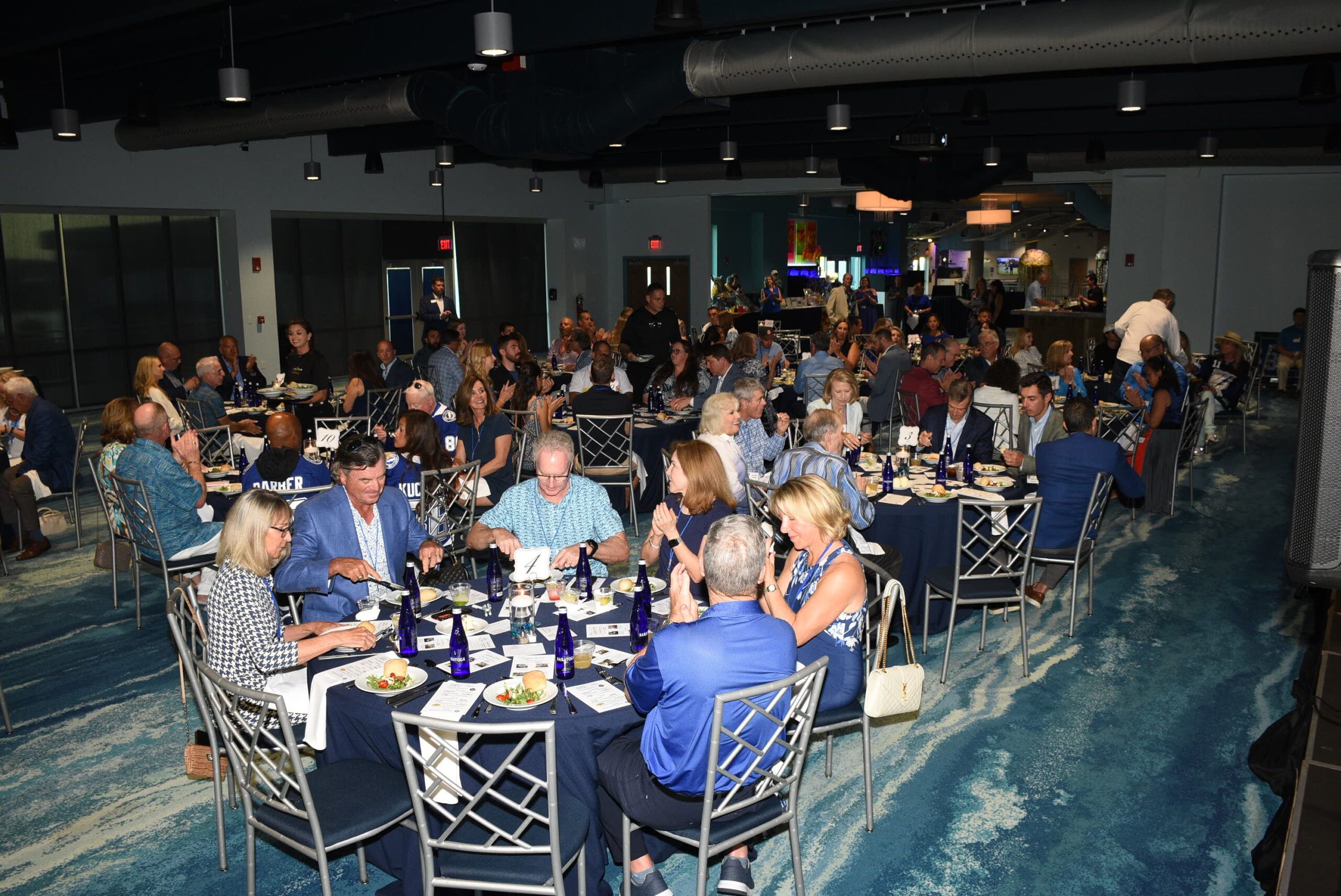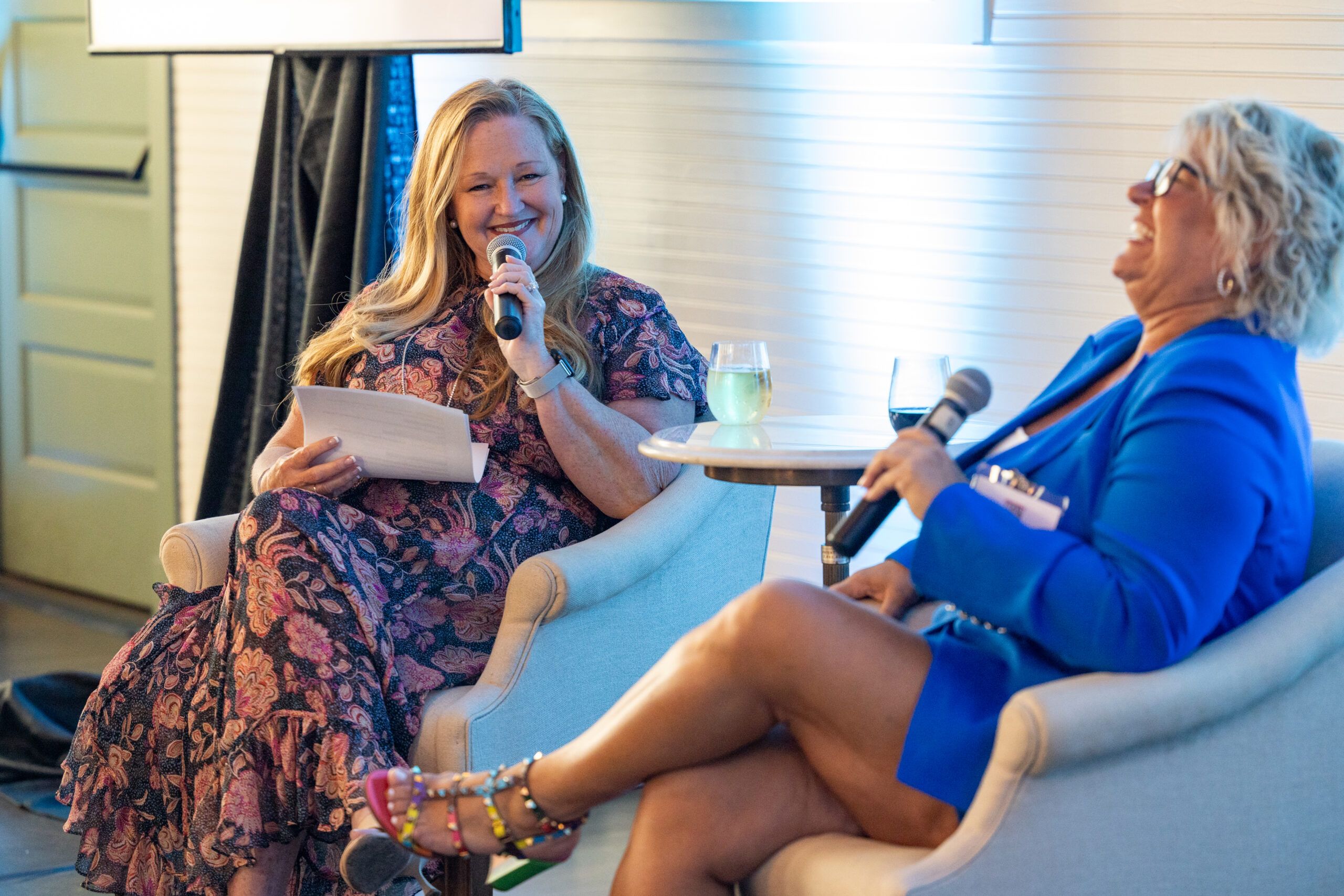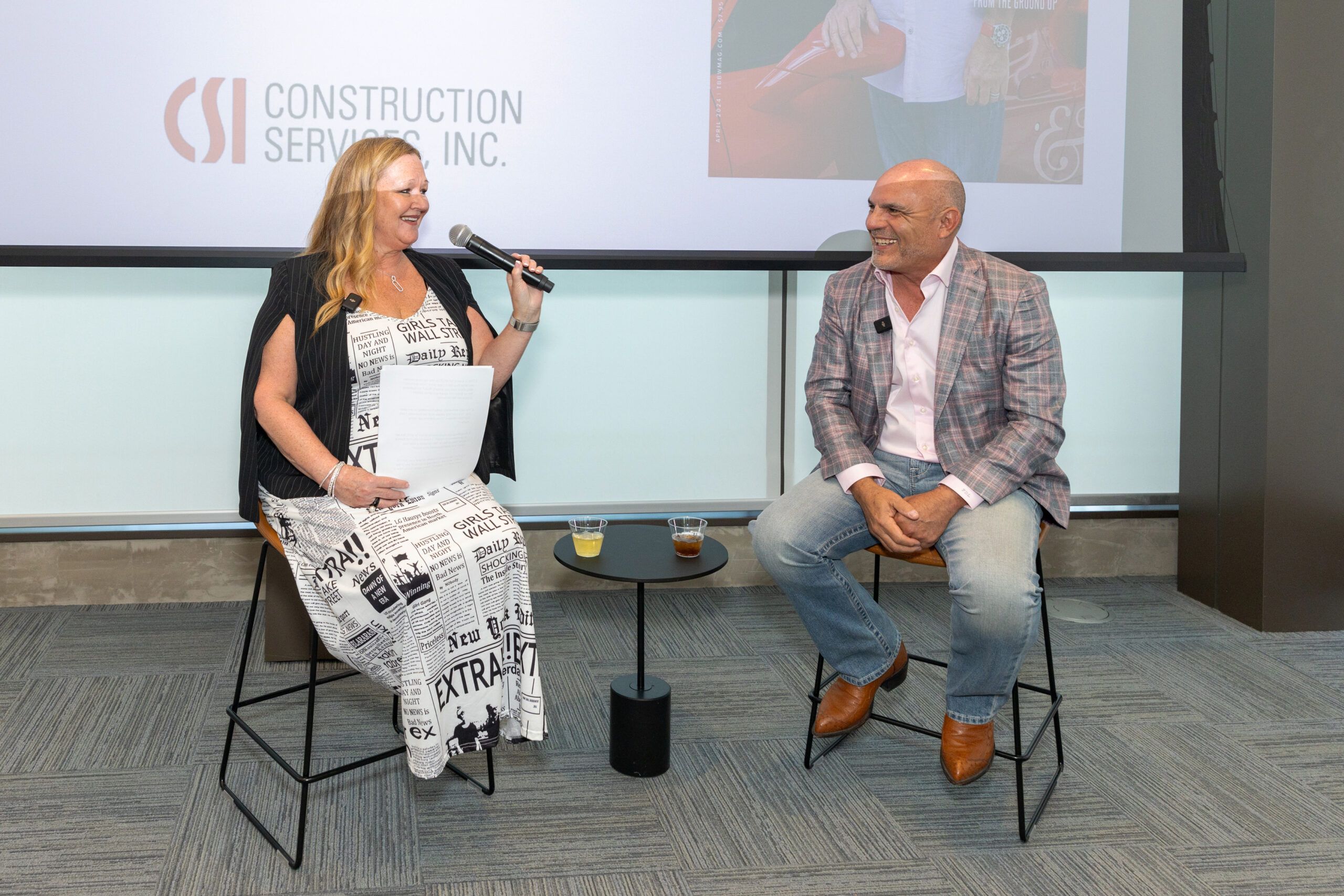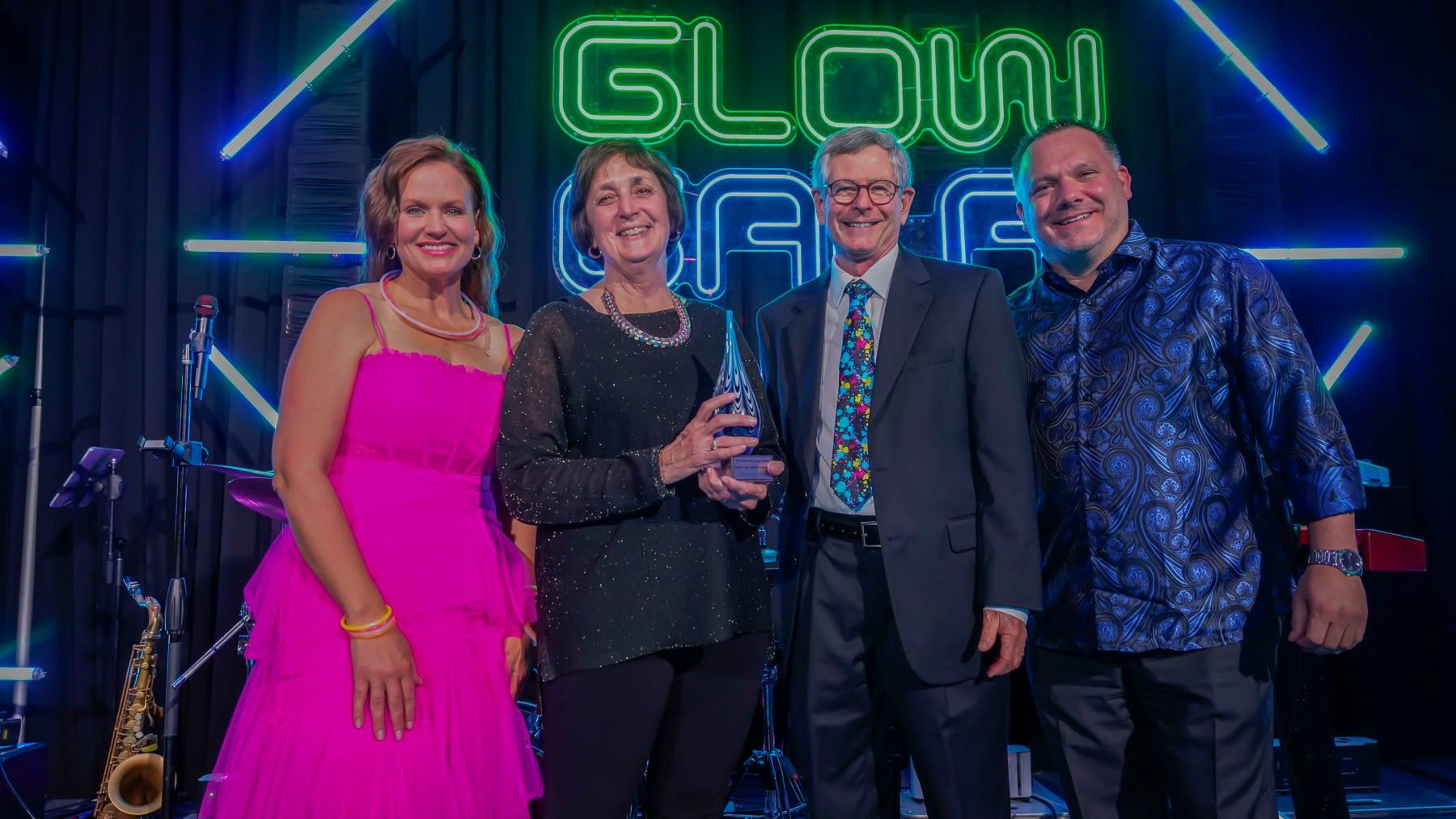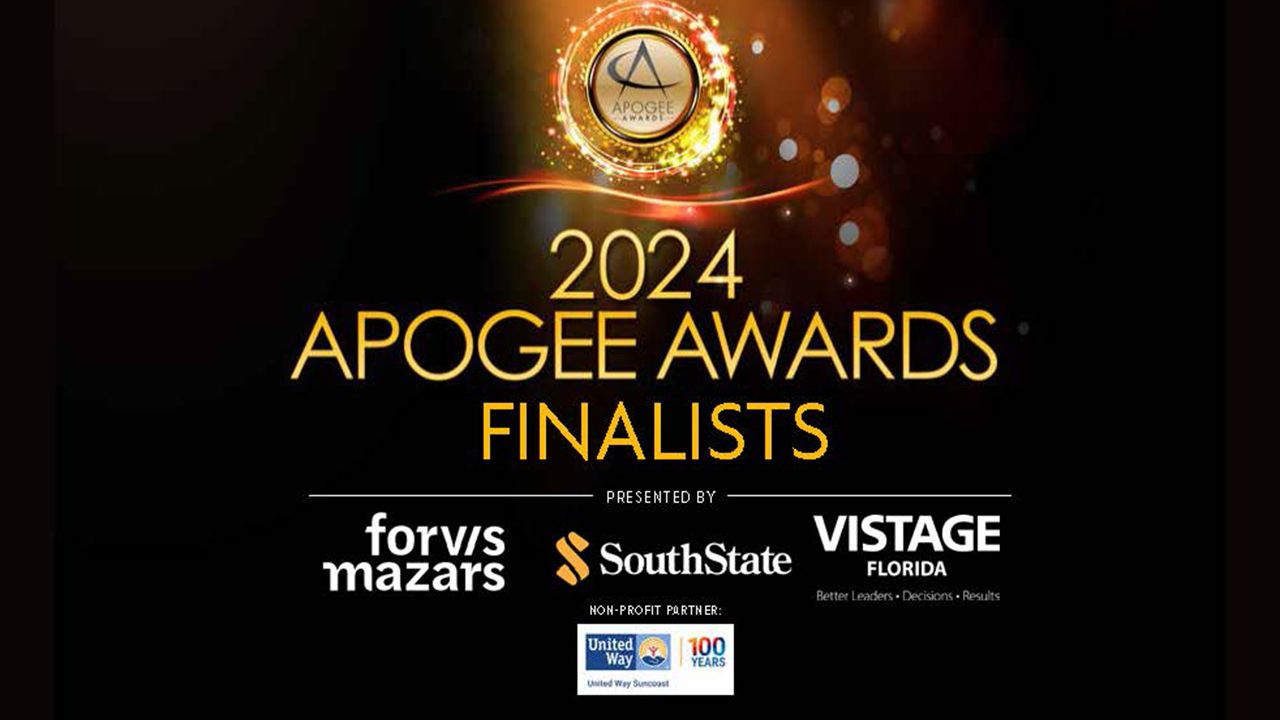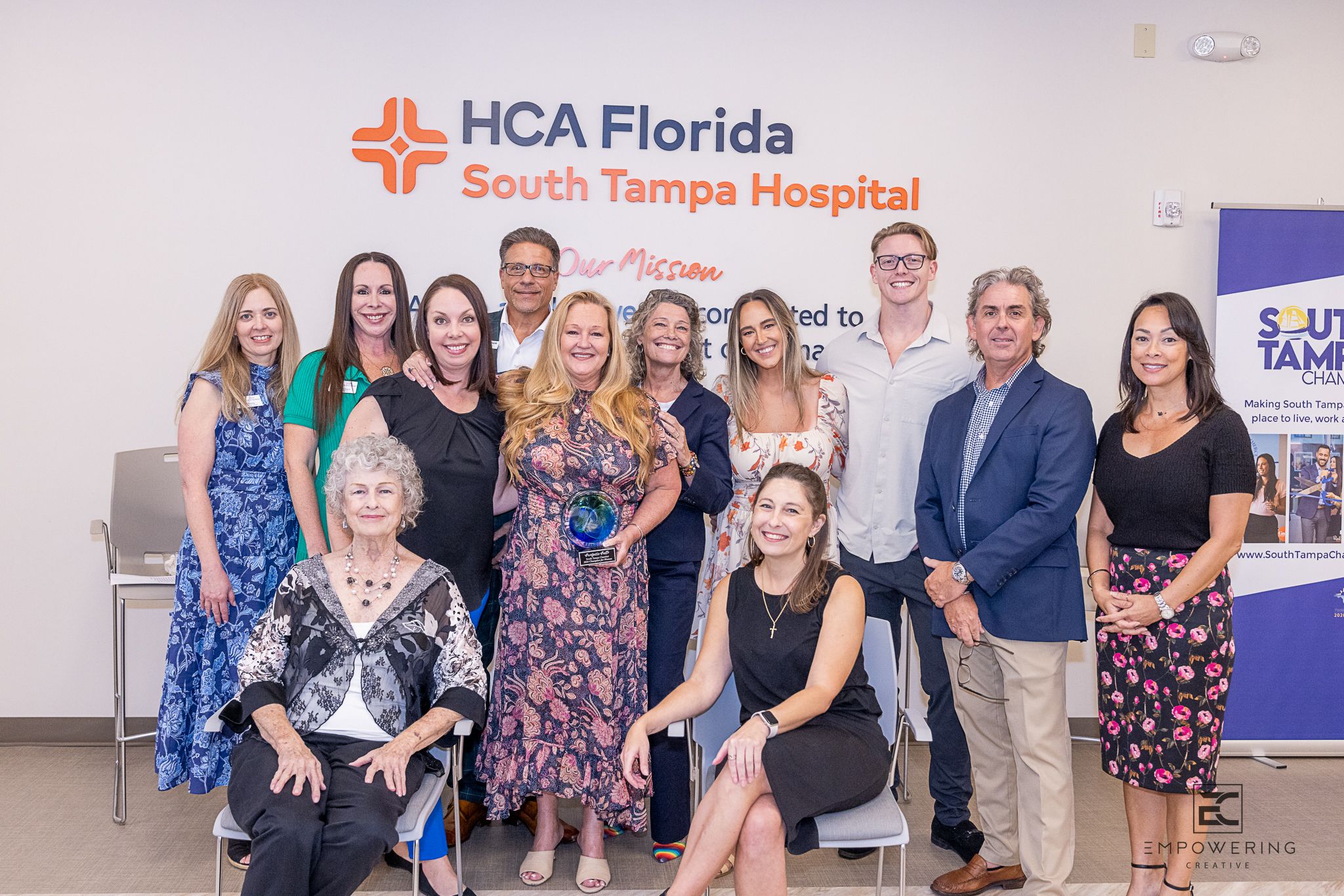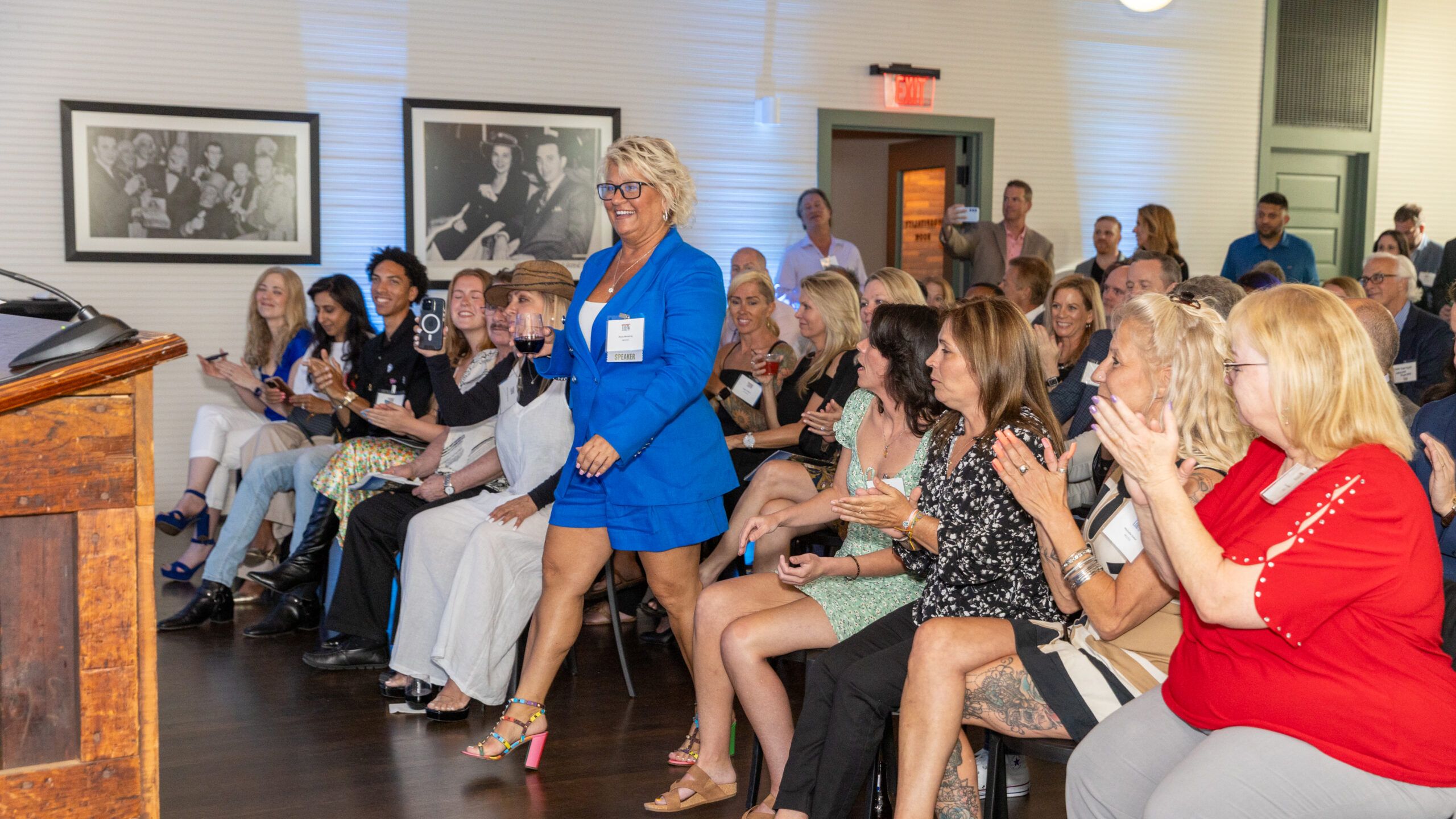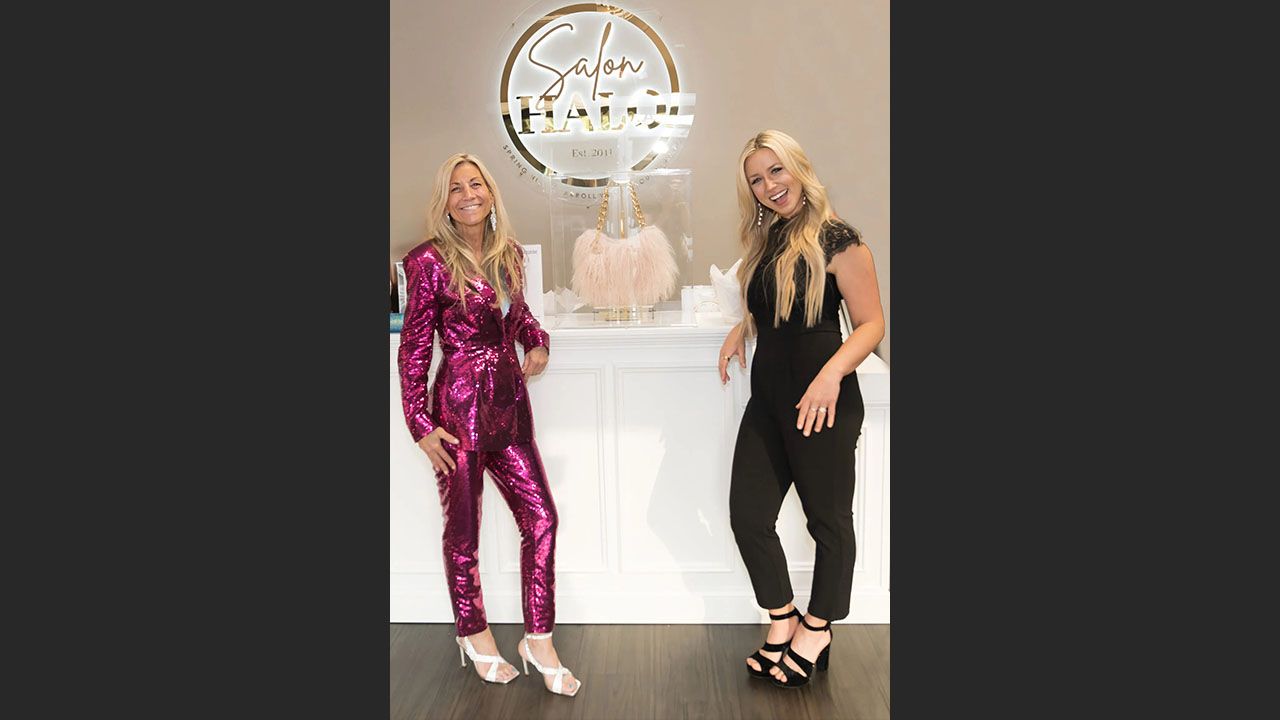Ahead of the start of the giving season, Tampa Bay Business & Wealth held its inaugural publisher’s dinner to discuss charitable giving.
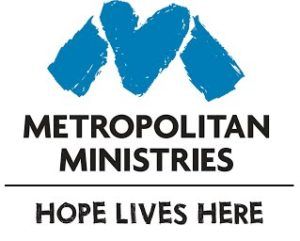 The dinner was held at Parkshore Grill in St. Petersburg and was presented by Metropolitan Ministries.
The dinner was held at Parkshore Grill in St. Petersburg and was presented by Metropolitan Ministries.
Here’s a transcript of that discussion, which was recorded and transcribed by court reporter Dana Stockton. It has been edited for length and clarity.
DINNER GUESTS
• J.P. Dubuque, St. Petersburg Economic Development Corp.
• Scott Fink, Hyundai of New Port Richey
• Tim Marks, Metropolitan Ministries
• Molly James, Metropolitan Ministries
• Jim Newman, Gregory Sherer & Stuart
• Steve Westphal, Go To Steve’s
• Katie Pemble, Baldwin Pemble Advisors
• Greg Nowak, Vantage
• Mike Connor, Paradise Ventures
Jack Kirkland, Cbiz
• Host: Bridgette Bello, publisher of TBBW
Bello: Part of our mission at the magazine is the belief that a rising tide benefits all boats. How do we help the nonprofits? How do we help the businesses that are off the radar? How do we help the leaders that don’t get the attention they deserve?
The Webster’s dictionary definition of philanthropy is “goodwill to fellow members of the human race and active efforts to promote human welfare.”
As companies consider the best ways to give, some are streamlining their giving to focus on a single cause or two.
An example of that is Wells Fargo. It announced it is putting $1 billion into efforts to promote affordable housing. In contrast Tito’s Handmade Vodka, with an annual revenue of $2.5 billion, hands all charitable giving to employees. It earmarks 1 percent of its annual revenue for charities and then it gives its 250 employees what the company calls the Joy Budget to support the organization they’re excited about.
My first question, and I’m going to lead off with you Scott is, what is your company’s philanthropic direction? What is the relationship, if any, between your corporate and personal giving?
Fink: I would say although we don’t have a $2.5 billion budget, we’re more akin to Tito’s strategy.
We peel off dollars from every car we sell and we put it in a charity account—and we sell a lot of cars. We sell about 1,300 cars a month. That’s $150,000 to $180,000 a year we push back into the community.
It can be as simple as sponsoring a golf tournament for $100. There was an instance, about four years ago, in which a family was killed in their home from a poisonous gas leak. All the father wanted to do was have his children buried in Ohio, but he had no money. So, we contacted the newspaper and we paid for it. We didn’t do it for any press. We did it because it was the right thing to do.
From a personal perspective, I’m involved in numerous organizations, including Metropolitan Ministries, where I serve on the board and I was able to help earmark and build transitional housing solely in Pasco County, where we now have 24 units.
My wife and I funded an infusion area for cancer patients at St. Joseph’s Children’s Hospital. I serve on the national board of Hyundai Hope on Wheels as the board chair, where we fund pediatric cancer research. Over a 21-year period, we’ve donated north of $160 million in grants.
Bello: Katie, I would like you to answer the question as well.
Pemble: When I was at the bank, we always tried to ask our employees what’s meaningful to them. It could be something as simple as recovery efforts for hurricane victims.
Where I really started to push heavily into health care and research was shortly after I was diagnosed with a heart condition right after I had my daughter 20 years ago. It was pregnancy-induced cardiomyopathy. I was at my doctor’s office asking about statistics, this was in 1999. And they said, “We can’t tell you what probabilities are relative to your healing or future events, because there are no studies where women are subjects.”
Then, the American Heart Association, a friend was involved and had heard about the “Go Red for Women” movement, and I launched that with the Heart Association here in 2002. Our sole mission was to raise money to plow into research where we could convince researchers to use women as subjects.
Westphal: Since my time in downtown St. Pete, the ask, if I had to quantify it, is nearly triple from what it used to be to the organizations that are at my doorstep now. And it does get to a point where you have to question, “Am I a trickle effect, or do I want to make an impact?”
As hard as it is to eliminate some, I felt it necessary to define the interest a little more. And while I love the Heart Association and the Lung Association, all of the national organizations that knock on our door too, when I look outside my front door and I see the homeless and the need for housing and the opportunities that maybe are up at Project Hope and Daystar, and everything that’s in my back yard, I feel compelled to do what I see, feel and touch with my own eyes, ears and heart.
Kirkland: We do a lot of individual tax returns. Some people make a lot of money and don’t contribute and there are other that make a lot of money that do contribute. Then there are others that don’t make a lot of money and contribute an enormous amount of money.
I will tell you [to Westphal], just knowing that about you, I will come here and eat at your restaurant just because of that.
Fink: As I will, too.
Newman: And I will come and buy a car from you [to Fink].
Westphal: The average meal is $25, and 25 cents is 1 percent. When you go to the St. Petersburg Free Clinic and they sit you down, they give you this little bagged lunch and say, “this is what the average person eats all day … so have fun at your six-course meal tonight.” This is how most people live in this county. And 25 cents buys a meal for someone. So [my restaurants] collects a whole bunch of 25 cents. The dollars are there, and the checks go out.
It’s really a much better reason to get out of bed than going and chasing more dollars and toys for myself.
Bello: Can you share with us how meaningful partnerships are happening today?
Nowak: We have a small company and I’m very passionate about pediatric cancer because I’ve lived it. So, we fund pediatric cancer, not only the foundations and hospitals, but also cutting-edge research we’ve funded.
We’ve also funded a lot of people that have outgrown the Ronald McDonald House and are able to stay closer to where they need to be for their treatment.
We think we understand the cancer research program, at least a little bit. If you really look at the cancer research program across the board, 85 percent of the medicines that cancer patients are getting today were born in the 1970s.
If you really look at the statistics, most of the improvements in cancer deaths are by diagnosing it quicker, because there are better tests today.
There’s a doctor who was very instrumental in saving my daughter’s life. We funded his research for years. We are very close to actually coming to a point that, when they do blood tests at birth, they will be able to understand that there’s a precursor to leukemia.
Bello: Your giving isn’t tied to whether or not it’s helping you meet your goals; it’s tied to what you’re passionate about?
Nowak: Ours is more emotional-based.
Fink: I was in Washington, D.C., two weeks ago. We gave out $16 million as a part of Hyundai Hope on Wheels. Its research directed exclusively to pediatric cancer research.
Most people don’t know that if these hospital systems don’t get these grants, the research doesn’t happen and the cures never come.
The other thing I want to add is, I get calls from friends and big businesses and they will ask how to get involved, we’re running around all day trying to do our jobs and we’d like to give back, but we don’t know how to do it.
Somewhere there has to be communication on how to open the door. Not everyone has the time or the connections … people are on a train going 100 miles an hour every day and it’s hard to get off, and if you don’t get off the train, you can’t see around you.
Kirkland: Organizations are looking for time, talent and treasure. The folks who can give a million dollars or $5 million dollars, that’s the treasure, and the organizations need that to further their mission.
But I think one thing that we can do as leaders is get our management team, or those in our companies, involved on the boards and help run the organizations. … they’re an invaluable resource for the management team of the nonprofits.
Bello: What strategies do you use to hold nonprofits accountable for delivering on their goals and how important are nonprofits’ metrics and outcomes to securing your support?
DuBuque: I am a nonprofit, so let me flip it around and I can tell you kind of how I approach this. The first thing, is that we don’t call those folks who contribute funds to us contributors, donors, sponsors or members—we call them investors. There’s no quid pro quo for passing a check to my organization. It’s really an investment on what we do.
Just like any other investment, you have to make sure that you communicate effectively what that investment is going to be used for and what they can expect.
We talk about the results that we look to achieve, the mission that we look to further and the impact that we expect to make on the community as a result of the dollars that are invested in our organization.
It’s a constant challenge for us to make sure that the communication is made in a method and a medium that both resonates in, and is received, by our investors so that they really do understand what is happening.
Fink: I’m on the board of Metropolitan Ministries. Quite a number of years ago, I put in KPI methodology, or key performance indicators, on how we’re doing as an organization.
We built 24 units of transitional housing. If all we saw were folks coming in and coming out, then coming back in and failing … other than helping them for six months, we wouldn’t have done anything.
But through strong leadership, great programming and counseling, these folks have measured success.
Kirkland: I echo that exactly. On the board of two large nonprofits, we are constantly mindful of being accountable to donors and givers and investors for what we’re doing with their money, and demonstrating how we are making a difference, because people who have large amounts of dollars want to know how it’s going to be used. You can’t give them a gray answer. It’s got to me measurable. ♦
[image_slider_no_space height=”300″ images=”6551,6552,6553,6554,6555″]



